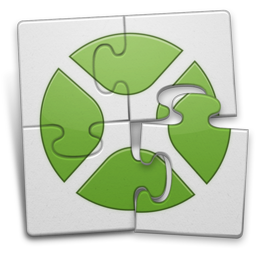Platforms to show: All Mac Windows Linux Cross-Platform
CFUUIDMBS class
Super class: CFObjectMBS
| Type | Topic | Plugin | Version | macOS | Windows | Linux | iOS | Targets |
| class | CoreFoundation | MBS MacCF Plugin | 10.5 | ✅ Yes | ❌ No | ❌ No | ✅ Yes | All |
CFUUID objects are used by plug-ins to uniquely identify types, interfaces, and factories. When creating a new type, host developers must generate UUIDs to identify the type as well as its interfaces and factories.
UUIDs (Universally Unique Identifiers), also known as GUIDs (Globally Unique Identifiers) or IIDs (Interface Identifiers), are 128-bit values guaranteed to be unique. A UUID is made unique over both space and time by combining a value unique to the computer on which it was generated—usually the Ethernet hardware address—and a value representing the number of 100-nanosecond intervals since October 15, 1582 at 00:00:00.
The standard format for UUIDs represented in ASCII is a string punctuated by hyphens, for example 68753A44-4D6F-1226-9C60-0050E4C00067. The hex representation looks, as you might expect, like a list of numerical values preceded by &h. For example, &hD7, &h36, &h95, &h0A, &h4D, &h6E, &h12, &h26, &h80, &h3A, &h00, &h50, &hE4, &hC0, &h00, &h67 . To use a UUID, you simply create it and then copy the resulting strings into your header and C language source files. Because a UUID is expressed simply as an array of bytes, there are no endianness considerations for different platforms.
You can create a CFUUID object, and thereby generate a UUID, using any one of the Constructors.
Subclass of the CFObjectMBS class.
- 5 methods
- method Bytes as Memoryblock
- method Constructor
- method Constructor(Bytes as Memoryblock)
- method Constructor(uuidStr as string)
- method StringValue as string
Super class CFObjectMBS
- 5 properties
- property Handle as Integer
- property Hash as Integer
- property Lasterror as Integer
- property Type as Integer
- property TypeDescription as String
- 9 methods
- method close
- method DeepCopy as CFObjectMBS
- method EncodedData as MemoryBlock
- method Equal(o as CFObjectMBS) as boolean
- method ReleaseObject
- method RetainCount as Integer
- method RetainObject
- method XML as CFBinaryDataMBS
- method XMLdata as String
- shared method NewCFObject(handle as Integer) as CFObjectMBS
This class has no sub classes.
Some methods using this class:
- CSDeviceMBS.DeviceInfo(deviceClass as string, deviceID as CFUUIDMBS) as dictionary
- CSDeviceMBS.RegisterDevice(deviceClass as string, deviceID as CFUUIDMBS, deviceInfo as dictionary) as boolean
- CSDeviceMBS.SetCustomProfiles(deviceClass as string, deviceID as CFUUIDMBS, profileInfo as dictionary) as boolean
- CSDeviceMBS.UnregisterDevice(deviceClass as string, deviceID as CFUUIDMBS) as boolean
- CSProfileMBS.CreateDeviceProfile(deviceClass as string, deviceID as CFUUIDMBS, profileID as Variant) as CSProfileMBS
Some examples using this class:
Blog Entries
The items on this page are in the following plugins: MBS MacCF Plugin.
